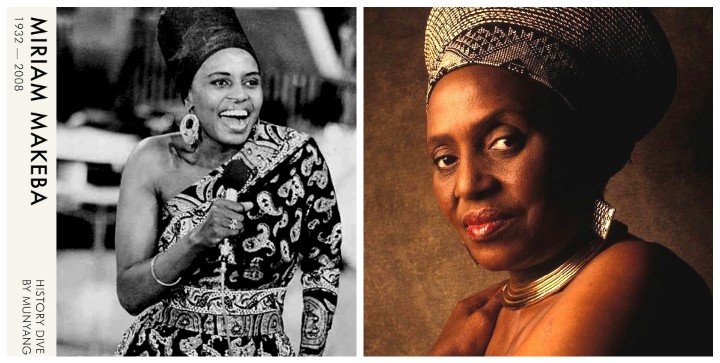Miriam Makeba
Source: Africa Publicity
Miriam Makeba, affectionately known as “Mama Africa,” was an iconic South African singer, songwriter, and civil rights activist who became an international symbol of resistance against apartheid. Her music, a fusion of jazz, traditional African melodies, and folk, transcended cultural and political boundaries, making her not only a beloved musician but also a global ambassador for South African culture and the anti-apartheid movement.
Early Life and Rise to Stardom
Born on March 4, 1932, in Johannesburg, South Africa, Zenzile Miriam Makeba was exposed to the richness of African music from a young age. Raised in a segregated society under the harsh realities of apartheid, her early life was marked by both poverty and racial discrimination. Despite these challenges, she found solace in music, performing in her local choir and later with the all-women group, the Skylarks.
Makeba’s breakthrough came when she starred in the 1959 anti-apartheid film Come Back, Africa, which was shown at the Venice Film Festival. This exposure led to her first steps onto the international stage, where her powerful voice and message caught the attention of American audiences.
International Success and Exile
In the early 1960s, Makeba moved to the United States, where she quickly rose to fame. Her hit songs, such as “Pata Pata” and “The Click Song,” introduced many Western listeners to African music. She became a trailblazer, using traditional Xhosa and Zulu languages in her lyrics, preserving her cultural roots despite the pressures of commercial success.
However, her international stardom came with a price. In 1960, after speaking out against apartheid at the United Nations, Makeba’s South African passport was revoked, forcing her into exile. She spent 30 years living abroad, using her platform to speak out against apartheid and racial injustice, becoming one of the loudest voices advocating for freedom in her homeland.
A Voice for Freedom and Justice
Beyond her music, Makeba was deeply involved in political activism. In addition to her UN speeches, she collaborated with other civil rights activists, including Martin Luther King Jr. and Harry Belafonte, who was instrumental in helping her gain a footing in the U.S. music industry. Her marriage to civil rights activist Stokely Carmichael, a leader in the Black Power movement, further solidified her role as a figurehead in the struggle for racial equality.
Makeba’s political stance often put her at odds with both South African and Western governments. Her outspoken opposition to apartheid, coupled with her marriage to Carmichael, led to her being blacklisted in the U.S., which significantly affected her career. Despite this, she continued to tour the world, bringing attention to the plight of her people through her music.
Return to South Africa
In 1990, after Nelson Mandela was released from prison, he personally invited Makeba to return to South Africa. After decades in exile, she returned to a free nation, welcomed as a hero. Her return marked the culmination of her lifelong fight against the apartheid system, a victory she celebrated by continuing to perform, advocate for African unity, and mentor younger generations of artists.
Legacy
Miriam Makeba’s legacy is one of resilience, artistry, and activism. As a musical ambassador for South Africa, she not only brought African music to the world stage but also used her influence to fight for justice and equality. Her contributions to global music and her role in the anti-apartheid movement remain enduring symbols of the power of art in the struggle for human rights.
Even after her passing in 2008, Makeba’s music continues to inspire generations. She remains an enduring figure in African history, celebrated not only for her contributions to music but also for her unwavering commitment to justice and her role as a global ambassador for South African culture.








